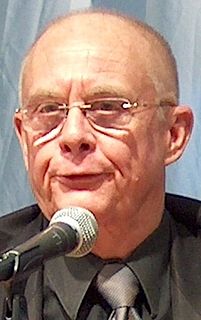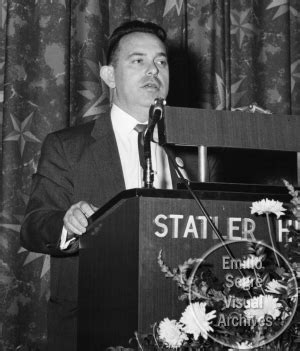A Quote by Joni Mitchell
Won't you stay We'll put on the day And we'll talk in present tenses
Related Quotes
These tenses-past, present and future-are not the tenses of time; they are tenses of the mind. That which is no longer before the mind becomes the past. That which is before the mind is the present. And that which is going to be before the mind is the future. Past is that which is no longer before you. Future is that which is not yet before you. And present is that which is before you and is slipping out of your sight. Soon it will be past.
Nothing could go wrong because nothing had...I meant "nothing would." No - Then I quit trying to phrase it, realizing that if time travel ever became widespread, English grammar was going to have to add a whole new set of tenses to describe reflexive situations - conjugations that would make the French literary tenses and the Latin historical tenses look simple.
There are certain concepts, which exist in English, and are unthinkable, untranslatable into Hebrew and vice versa. Hebrew has a system of tenses, which is, in a big way, different from the English system of tenses, probably different than any European system of tenses, which means a different sense of reality, which means a different concept of time. So, things can be translated, but they become different.
Try to find the real tense of the report you are reading: Was it done, is it being done, or is something to be done? Reports are now written in four tenses: past tense, present tense, future tense, and pretense. Watch for novel uses of CONGRAM (CONtractor GRAMmer), defined by the past imperfect, the present insufficient, and the future absolutely perfect.
The truth is I am not a very hands-on political wife; I don't get involved in day-to-day Downing Street life. They don't need me interfering, but in the evening, we will talk about each other's day. I try to stay out of the Westminster village. There are times when I will be surprised and curious about what's been announced.
In 1850, August Salzmann photographed, near Jerusalem, the road to Beith-Lehem (as it was spelled at the time): nothing but stony ground, olive trees; but three tenses dizzy my consciousness: my present, the time of Jesus, and that of the photographer, all this under the instance of 'reality' - and no longer through the elaborations of the text, whether fictional or poetic, which itself is never credible down to the root.


































